Finding the right debt solution can be challenging, as both credit card balance transfers and personal loans have their pros and cons. Personal loans are a good fit if you have different types of debt, but a balance transfer is ideal if you're mostly dealing with credit card debt.
Luckily, there are excellent personal loans and balance transfer credit cards available. The right one should relieve your debt to the point that you feel it was custom-tailored to your needs.
Our guide below takes a close look at both of these options, allowing you to determine which strategy is best for your situation
Key Takeaways
- If you have a variety of debt types, you can consolidate them into a personal loan with a fixed repayment schedule.
- A balance transfer is a good option if you mainly have credit card debt and a great credit score.
- Carefully read the terms, interest rates, and details about promotional periods before choosing a balance transfer or personal loan.
Never miss an amazing deal again + get our bonus 250+ page eBook for FREE. Join 50,000 other Canadians who receive our weekly newsletter – learn more.
Credit card balance transfer or personal loan: How to choose
If you’ve been searching for ways to manage your debt, you’ve probably come across personal loans and balance transfers, but you may not know exactly what they are.
Both allow you to move your existing debt to a new financial product that hopefully has better interest rates and terms. This means you can pay less in interest, so more of your money is going towards paying down your actual debt.
Let’s take a closer look at both of these options.
What are balance transfers?
A balance transfer is a particular type of credit card transaction in which you transfer your existing credit card balances to a new credit card that has a promotional balance transfer interest rate. This gives you a window of time to quickly pay down the debt without paying as much in interest.
Keep in mind that promotional periods typically last just a few months to a year and you might be charged an overall balance transfer fee of 1% to 3% of the total debt you’re transferring.
What are personal loans?
A personal loan in Canada is simply when you borrow a set amount of money from a lender, agreeing to pay it back in installments over a set period of time.
People get personal loans in Canada for a variety of reasons, but these aren't like car loans and mortgages, which are loans you get for specific purposes. Instead, personal loans can be used for anything you want, from home renovations to taking a dream vacation to debt consolidation, and more.
Just be aware that there are two types of personal loans: unsecured and secured. Unsecured loans don’t require collateral, so they tend to have higher interest rates. Secured loans are backed by collateral, like your home, which means you might score more favourable interest rates.
Key differences
To help you get a sense of which option is better for your finances, check out the main differences between the two.
| Personal loan | Balance transfer | |
|---|---|---|
| Loan type | Installment loan | Revolving credit |
| Interest rates | Lower than standard credit cards | Very low promotional rate, followed by a low balance transfer rate |
| Associated fees | Possible origination fee of 0.5% to 5% | Possible one-time fee of 1% to 3% |
| Repayment plan | Fixed payment schedule | Monthly payments are required, but amounts vary |
| Credit requirements | Can qualify with a lower score, but will pay more in interest | Good to excellent credit |
| Best for: | People looking for funds they can use in a number of ways or those with less than perfect credit | People with good credit and financial discipline looking to quickly pay down debt |
Questions to ask yourself when choosing between a balance transfer or personal loan
Now that you know more about what a personal loan is and how a balance transfer works, ask yourself some of these questions to get an idea of which financial product is best for your situation:
- What kinds of debt do you have? If you just have credit card debt, a balance transfer makes sense. But if you’ve got a variety of debt types, getting a personal loan allows you to pay them off.
- How much debt do you have? Some balance transfer cards have minimum debt requirements, so if you don’t have enough debt to move, you won’t qualify. On the flip side, cards and personal loans may have limits, so do your research before applying for one.
- How much will you pay in interest? Compare your current interest rate/s to the one offered by a balance transfer card or personal loan to see which one would save you money.
- What fees are included? Balance transfer cards usually have a one-time fee of 1% to 3% of the amount transferred, while personal loans often have an origination fee of 0.5% to 5%.
- How will a new product affect your credit score? Applying for either a loan or credit card will temporarily drop your score by a few points, but taking out more credit will have a bigger impact on your score since it will change your credit utilization ratio, the amount of credit you have and how much of it you’re using.
- Which repayment plan do you prefer? A personal loan has fixed monthly installments, while a balance transfer card has variable payments every month that are based on your card usage and how much debt you pay down.
- What product could you qualify for? Balance transfer cards typically require a good credit score, while it’s possible to find a personal loan if you have less-than-stellar credit. Keep in mind that some balance credit cards also have income requirements you have to meet.
Best balance transfer credit cards
If you're interested in taking advantage of an ultra-low interest balance transfer offer, here are some of the best currently available in Canada.
Be sure to check out our full ranking of the best balance transfer credit cards in Canada, but for now, here are three that stand out.
| Credit Card | Balance transfer offer | Balance transfer interest rate (permanent) | Special features | Apply now |
|---|---|---|---|---|
| MBNA True Line Mastercard | 0% interest for 12 months (terms) | 17.99% | * 12.99% interest rate on purchases * No income requirements | Apply now |
| CIBC Select Visa Card | 0% interest for 10 months (terms) | 13.99% | * Save up to 10 cents per litre on fuel at Journie Rewards gas stations * Low permanent interest rate on purchases | Apply now |
| Scotiabank Value Visa Card | 0.99% interest for 9 months (terms) | 13.99% | * Low permanent interest rates on all purchases | Apply now |
1. No fee balance transfer card
The
You can take advantage of 0% interest on balance transfers for 12 months, with a 3% fee on the amount transferred. After 12 months, however, the balance transfer interest rate will jump to its usual 17.99%, so be sure to pay that balance off as quickly as you can.
2. Balance transfer card with optional insurance
CIBC offers a credit card with a low introductory balance transfer rate, the
This balance transfer card charges a lower one-time fee of just 1%, compared to 3% for the MBNA True Line Mastercard. The balance transfer interest rate is also lower after the promotional period is complete, making this a worthwhile option if you’ll take longer than 10–12 months to pay off your balance.
Another feature that sets this card apart is the optional insurance coverage it offers. If you like, you can add CIBC emergency travel medical and payment protector insurance coverage.
3. Low permanent interest rates
If you're not sure you'll be able to pay off your balance transfer before the introductory period is over, you might also prefer the
This Scotiabank Value Visa Card doesn't earn any rewards, but it does have a low introductory balance transfer offer of 0.99% for 9 months.
This low interest rate applies to both purchases and cash advances as well, making this a solid choice for anyone who tends to carry a balance from month to month.
Unfortunately, the Scotiabank Value Visa Card doesn't include any insurance coverage, but with a low $29 annual fee (that’s waived for the first year), it doesn't cost much to keep in your wallet.
Alternatives to a credit card balance transfer or personal loan
Credit card balance transfers and personal loans might be right for some people, but not for everyone. If you’re looking for a different strategy, check out your alternative options.
| Option or product | Pros | Cons |
|---|---|---|
| Debt consolidation loan | * You’ll get a fixed repayment plan and usually enjoy lower interest rates * You’ll have one bill rather than multiple credit card payments | * If you have a poor credit score, you’ll pay more in interest * You may pay high origination fees |
| Line of credit | * This typically has a lower interest rate than a personal loan, so you could save on interest * You’ll only pay what you charge to the line of credit, which offers you some flexibility | * The interest rates may be variable * It might be tempting to charge more to the line of credit |
| Home equity line of credit (HELOC) | * You’ll have the flexibility to consolidate debt while accessing a credit line * You’ll only have one monthly payment instead of paying multiple lenders | * You risk losing your home if you fall behind on payments * These come with several fees like annual fees, origination fees, appraisal fees, and more |
| Negotiate with your current lenders | * Your lender may offer you a temporary reduction in your interest rate, which could help you make payments | * Your lender may not be willing to adjust your terms * It might take longer to repay the loan if the lender adjusts your interest rate |
| Improved budgeting or lifestyle changes | * You’ll gain valuable skills for staying out of debt and saving for the future | * It can be difficult to make behavioral changes if your income doesn’t change as well |
FAQ
Is it better to transfer credit card balances or get a personal loan?
It completely depends on your personal financial situation, so ask yourself questions about your debt, repayment strategy, and which products you’re eligible for before you begin applying for a balance transfer card or personal loan.
Is it better to have a loan or credit card balance?
Both are forms of debt, so it’s important to stay on top of payments. That said, personal loans often have lower interest rates, so the debt might not be costing you as much as a credit card balance.
Should I pay off credit cards or personal loans first?
To tackle your debt, consider the interest rates you pay for your credit cards and personal loans. Most financial experts agree that it’s better to pay off the high-interest debt first, which frees up funds to pay down the rest.
Do balance transfers hurt your credit score?
Applying for a balance transfer credit card will temporarily cause your score to drop a little, but it should quickly recover as long as you make your new payments on time every month.
Can I transfer my credit card balance to a personal loan?
Yes, you can transfer your credit card balance to a personal loan. This is known as debt consolidation, but you’ll only want to do it if the loan’s interest rates and terms are more favourable.
creditcardGenius is the only tool that compares 126+ features of 228 Canadian credit cards using math-based ratings and rankings that respond to your needs, instantly. Take our quiz and see which of Canada's 228 cards is for you.



 ×2 Award winner
×2 Award winner  $20 GeniusCash + 0% on balance transfers for 12 months (3% fee) + No annual fee.*
$20 GeniusCash + 0% on balance transfers for 12 months (3% fee) + No annual fee.*


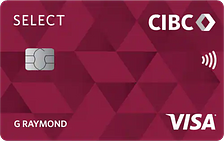



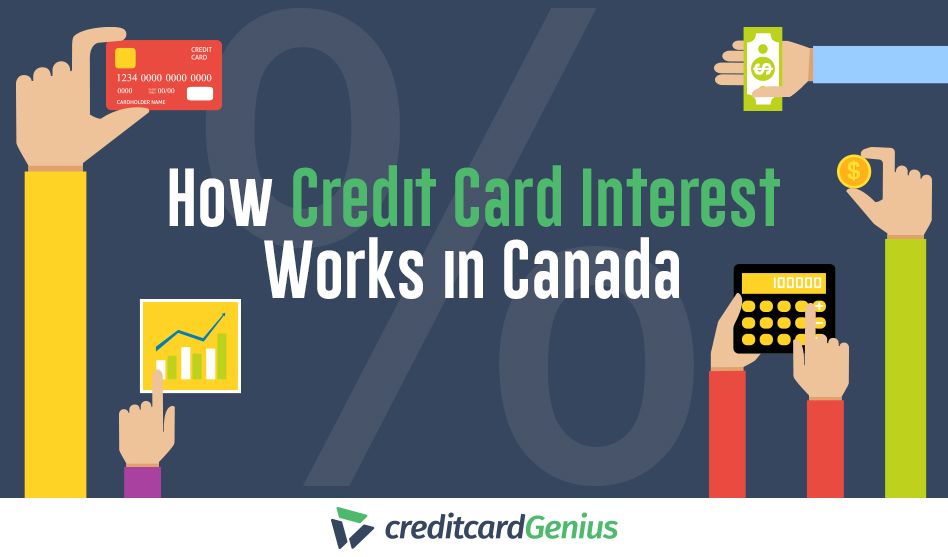
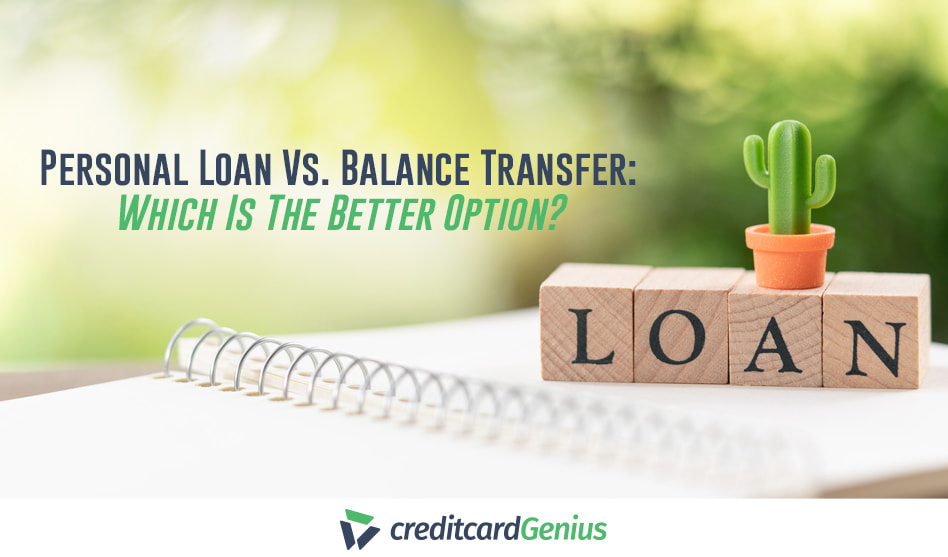
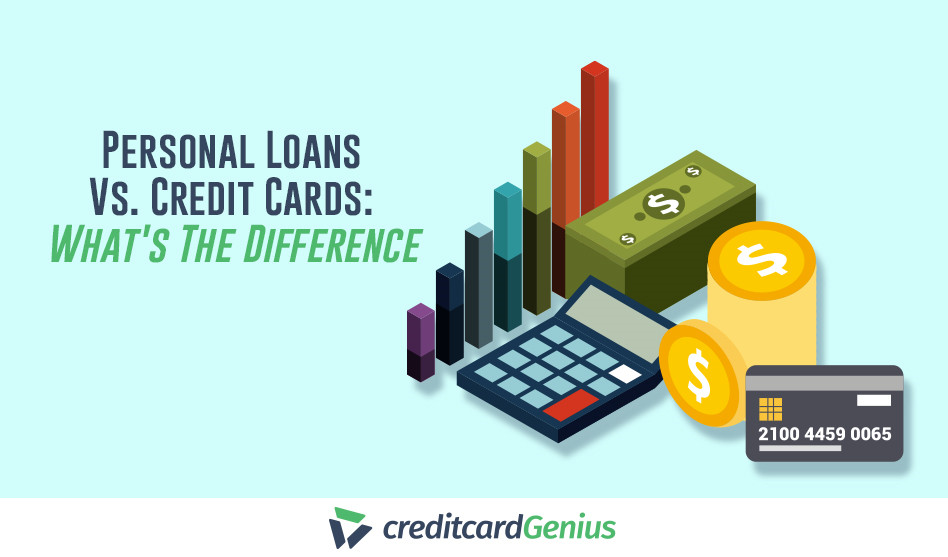


 GC:
GC: 








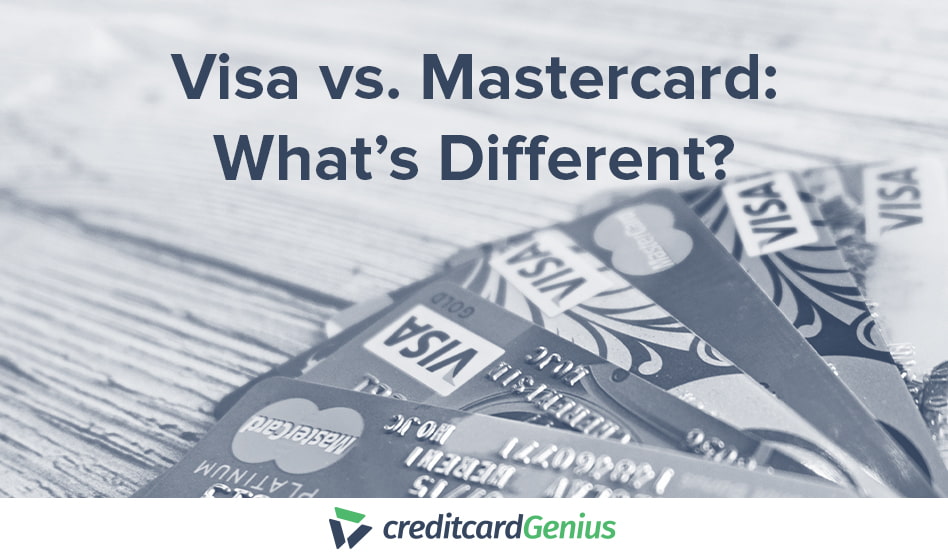
























Comments
Leave a comment
Required fields are marked with *. Your email address will not be published.